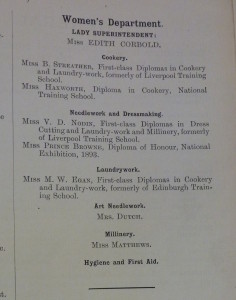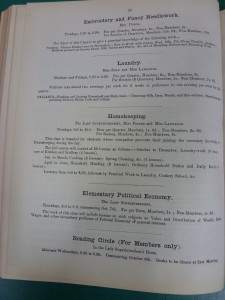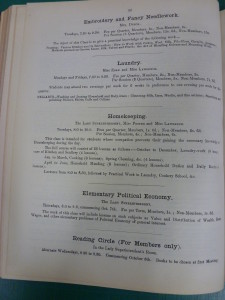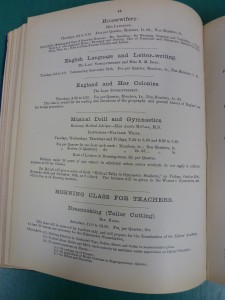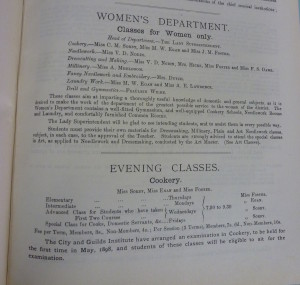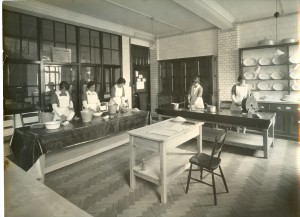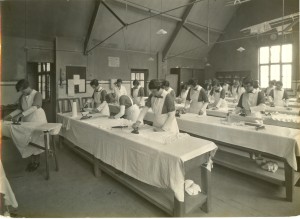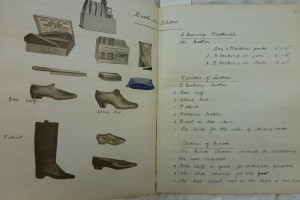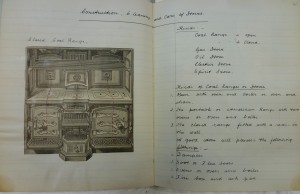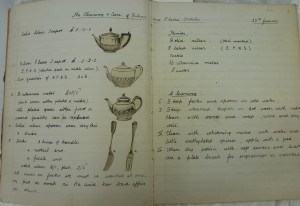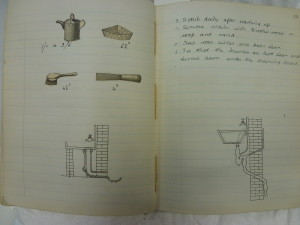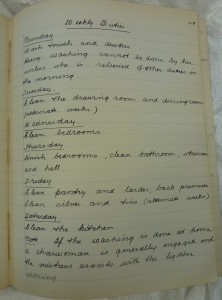The history of Battersea Polytechnic and University of Surrey can be used to reflect the changing and developing history of female students. This post demonstrates just some of the ways in which the options given to female students have radically changed since the founding of Battersea Polytechnic in 1891.
When Battersea Polytechnic was founded in 1891, the options available to women were incredibly limited – bear in mind this is the late Victorian period the educational opportunities were in no way readily available in the way they are today, most women had no real economic or social status of their own would be confined to a world in domestic service, factories or working as dressmakers, they would always be secondary to any men in their lives.
The idea of having an institution, like a Polytechnic , that would give women the opportunity to advance themselves would be an appealing one, something that was much more readily available and accepted to the middling classes than to the lower classes.
When the Polytechnic first opened its doors to students, there were 6 main departments ‘Women’s Subjects’ being a completely separate department, kept removed from the more masculine departments of Electrical Engineering and physics and Chemistry.
Here is an example of just some of the subjects advertised in the early prospectuses of Battersea Polytechnic.
The subjects, and indeed the existence of a Women’s Department may seem very archaic to us today, and very un-politically correct, but then you have to bear in mind the times in which they were produced, the very fact that there were opportunities for women to advance themselves is incredibly commendable – the skills the women could learn in these classes would stand them in good stead when they looked for employment.
At the beginning classes, for men and women, were only to be taught in the evening, aimed predominately at apprentices, but it did not take long for classes to start being run in the day – for those unable to attend in the evening or for those of school age. Out of this came the School of Domestic Economy for Girls and a Training School in Domestic Economy for teachers – aimed at training future teachers of these ‘women’s subjects’.
The archives have some wonderful photographs of these girls in the classroom.
This training college ran for many years, and was the spur behind the creation of the Battersea Polytechnic Cookbook referenced in our previous post.
We have within the University Archives a wonderful collection of lecture books produced by a student studying just some of these subjects.
They are fascinating to look at and again remind us just how much has changed in just the past 100 years or so. Not only are women in equal in their choice of subjects when studying at a University – there is no separate Women’s Department – but also in a domestic sense our lives have become so much easier. It now no longer takes days to do the household laundry; we no longer need to scrub and blacken our kitchen ranges, or have a schedule of domestic tasks that take up an entire week.
Just think about all those tasks that we see in costume dramas such as Downton Abbey and think are twee and quaint – these are the very things these women were studying at the start of Battersea Polytechnic!
So this post is a nice reflection as to how times have changed for the better for female students. And personally makes me think how lucky we are that Laundrywork is now no longer taught at the University

